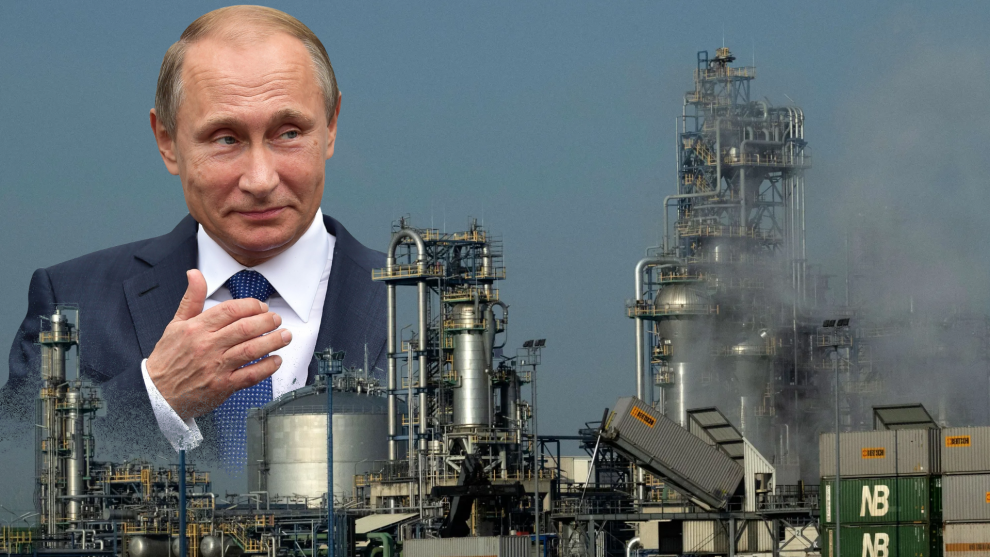Gazprom plans to stop gas supplies to Austria due to a €230 million arbitration conflict with OMV.
Gazprom’s decision to cut gas supplies to Austria, effective Saturday, arises from an unresolved legal dispute with OMV, which withheld payments to offset a €230 million arbitration award. The halt in deliveries poses a significant challenge to Austria’s energy stability during the winter season, highlighting Europe’s ongoing struggle to secure reliable energy alternatives to Russian gas. In response, OMV is actively seeking alternative suppliers while standing firm on enforcing its arbitration victory.
In a move that underscores the volatility of Europe’s energy supply amid ongoing geopolitical tensions, Russian energy giant Gazprom PJSC has notified Austria’s leading energy company OMV that it will cease natural gas deliveries starting Saturday. The decision marks the latest escalation in a high-stakes legal and financial dispute, with significant implications for Austria’s energy security and Europe’s broader efforts to manage its reliance on Russian gas.
Details of the Dispute
The supply cutoff follows OMV’s announcement that it would suspend payments to Gazprom to recover a €230 million ($242 million) arbitration reward granted earlier this year. The arbitration tribunal ruled in favor of OMV, concluding that Gazprom had failed to meet contractual obligations in prior transactions, leading to financial damages.
OMV has since sought to offset the awarded amount against its ongoing payments for gas supplies. In a statement, OMV’s CEO, Alfred Stern, described the decision as a necessary legal step. “Our actions are in full compliance with international arbitration rulings, and we remain committed to protecting our financial and contractual interests,” Stern said.
However, Gazprom has rejected the tribunal’s decision, branding it as biased and legally flawed. In response, the Russian firm announced the suspension of all gas deliveries to Austria, framing the move as a direct consequence of OMV’s “unilateral breach of payment obligations.”
Energy Security in Austria
The timing of the cutoff could hardly be worse for Austria, with temperatures dropping and energy demand on the rise. Historically, Austria has relied heavily on Russian gas, with Gazprom supplying a significant share of its energy needs. Although the country has diversified its supply sources since the onset of Russia’s war in Ukraine, complete independence from Russian energy remains elusive.
The current crisis threatens to strain Austria’s gas reserves, which were bolstered over the summer to approximately 90% capacity. While these reserves can temporarily cushion the immediate impact, experts warn that prolonged disruptions could lead to energy shortages, price spikes, and increased reliance on costly liquefied natural gas (LNG) imports.
“Austria faces a difficult winter,” noted Hans Gruber, an energy policy expert at the Berlin Institute for Energy Studies. “Although storage levels are high, they are not infinite. Finding alternatives to Russian gas on short notice, especially during peak winter demand, will be challenging and expensive.”
Economic and Political Fallout
The cutoff highlights the fragility of Europe’s energy infrastructure, which has been under immense strain since the escalation of hostilities between Russia and Ukraine. European nations, including Austria, have spent the past two years diversifying their energy sources, increasing storage capacities, and investing in renewable energy projects. However, the sudden cessation of gas supplies demonstrates how vulnerable the continent remains to disruptions in Russian energy exports.
Austrian Chancellor Karl Nehammer has expressed serious concern about the development. In a press conference, Nehammer called on Gazprom to honor its contractual obligations and avoid further destabilizing the region’s energy market. “This unilateral decision by Gazprom is unacceptable and undermines trust in international energy partnerships,” he said.
At the European level, officials have reiterated calls to accelerate the transition away from fossil fuel dependence, particularly Russian gas. European Commission President Ursula von der Leyen described the situation as “a stark reminder of the urgency to end Europe’s reliance on unpredictable energy suppliers.”
OMV’s Mitigation Strategies
OMV, for its part, has already begun activating contingency plans to mitigate the fallout. The company is reportedly in talks with Norway and other European gas suppliers to increase imports. It is also exploring expanding LNG deliveries through terminals in Germany and Italy, though logistical challenges may limit the immediate feasibility of these measures.
In its public statements, OMV has sought to reassure consumers and businesses that it is working tirelessly to prevent disruptions. “We are leveraging our diversified portfolio to ensure stable energy supplies for Austria,” an OMV spokesperson said. “Our goal is to minimize any potential impact on households and industries.”
Wider Geopolitical Implications
The supply halt has reignited debates about the role of energy as a geopolitical tool. Analysts suggest Gazprom’s decision is not merely a commercial response but a calculated political move by Moscow to exert pressure on Europe amid a backdrop of sanctions and diplomatic hostilities.
“This is not just about OMV or Austria,” said Elena Kuznetsova, a political analyst at the Moscow Center for Energy Policy. “Russia is sending a message to Europe that it retains significant leverage in the energy domain, despite ongoing efforts to decouple.”
For Europe, the incident underscores the need to expedite long-term strategies to enhance energy security, including investments in renewables, nuclear energy, and regional energy interconnectivity.
What Lies Ahead?
As Austria braces for a potentially turbulent winter, the broader question remains whether this standoff will escalate into a larger confrontation between Gazprom and its European clients. The outcome of the dispute will not only determine Austria’s energy stability but also set a precedent for how similar conflicts might be handled in the future.
In the meantime, Austrian consumers and industries must prepare for potential disruptions, higher energy costs, and an uncertain outlook as the energy standoff between Gazprom and OMV unfolds.
This article will be updated as further developments emerge.






